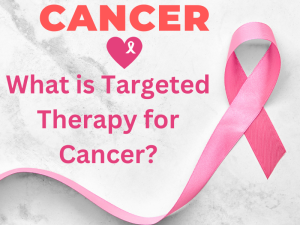Radiation therapy is an essential treatment option for various stages of colon cancer, often complementing surgery and chemotherapy. For patients and caregivers alike, understanding the duration and details of radiation treatment can help ease concerns and prepare for the journey ahead. This comprehensive guide will explore the timeline, process, and factors influencing radiation treatment for colon cancer, offering clarity and actionable insights.
What is Radiation Therapy for Colon Cancer?
High-energy photons or particles are used in radiation treatment to kill cancer cells. It’s often part of a multidisciplinary approach to managing colon cancer and can be used:
- Before surgery, to shrink tumours (neoadjuvant radiation).
- After surgery to eliminate residual cancer cells (adjuvant radiation).
- As a palliative treatment for advanced cases.
How Does Radiation Therapy Work?
Radiation therapy targets the DNA of cancer cells, disrupting their ability to grow and divide. These injured cells eventually die, and the body eliminates them. Modern techniques like external beam radiation therapy (EBRT) ensure precision, minimizing damage to healthy tissues surrounding the tumour.
How Long is Radiation Treatment for Colon Cancer?
The duration of radiation treatment for colon cancer varies depending on the individual’s case, treatment goals, and overall health. Below are common scenarios and timelines:
Standard Radiation Therapy Timeline
- Pre-Surgical Radiation (Neoadjuvant): Typically lasts 5-6 weeks, with daily sessions Monday through Friday.
- Post-Surgical Radiation (Adjuvant): Similar duration as pre-surgical radiation, depending on the extent of remaining cancer cells.
- Palliative Radiation: May last 1-2 weeks, depending on symptom relief goals.
- H3: Daily Session Breakdown
Each daily radiation session usually lasts about 15-30 minutes. The radiation exposure is brief, but preparation and positioning take up most of the time.
Factors Influencing Radiation Treatment Duration
- Several factors determine the length of radiation therapy for colon cancer, including:
Stage and Location of Cancer
- Early-stage cancers may require shorter treatments.
- Advanced or metastatic cases might need prolonged or repeated sessions.
Treatment Goals
- Curative intent requires longer durations.
- Palliative care focuses on symptom relief and may involve shorter timelines.
Patient’s Overall Health
- Patients with compromised health may require adjustments to standard treatment plans.
What to Expect During Radiation Treatment
Radiation therapy is non-invasive and painless. Here’s what a typical process entails:
Initial Consultation
A radiation oncologist evaluates the patient’s medical history, performs imaging tests, and develops a personalized treatment plan.
- Simulation and Planning
- Simulation involves mapping the treatment area using CT or MRI scans.
- For reliable placement, a custom mould could be made.
Treatment Sessions
- Patients lie on a treatment table, and the radiation machine targets a specific area.
- Sessions are quick, but consistent attendance is crucial for effectiveness.
Side Effects and Recovery
Radiation therapy can cause side effects, which vary by individual. Common side effects include:
Acute Side Effects
- Fatigue
- Skin irritation at the treatment site
- Changes in bowel habits (diarrhoea or cramping)
Long-Term Side Effects
- Risk of bowel obstruction
- Scarring in the treated area
Managing Side Effects
Effective management strategies include:
- Staying hydrated and maintaining a balanced diet.
- Following the oncologist’s recommendations for skin care.
- Reporting severe side effects promptly for medical intervention.
The Role of a Multidisciplinary Team
A team of specialists, including oncologists, radiologists, surgeons, and nurses, collaborate to ensure the best outcomes for colon cancer patients undergoing radiation therapy.
FAQs About Radiation Therapy for Colon Cancer
Is Radiation Therapy Painful?
Radiation itself is painless, but side effects may cause discomfort.
Can Radiation Therapy Cure Colon Cancer?
Radiation therapy is highly effective in combination with surgery and chemotherapy but may not be sufficient as a standalone cure.
How Should I Prepare for Radiation Treatment?
Maintain a healthy diet and adequate hydration.
Communicate openly with your care team about concerns or pre-existing conditions.
Conclusion
Understanding the duration and process of radiation treatment for colon cancer is crucial for patients and caregivers. With advancements in technology and a multidisciplinary approach, radiation therapy continues to play a vital role in the comprehensive management of colon cancer. Patients can approach their treatment path with hope and confidence if they remain proactive and knowledgeable.




